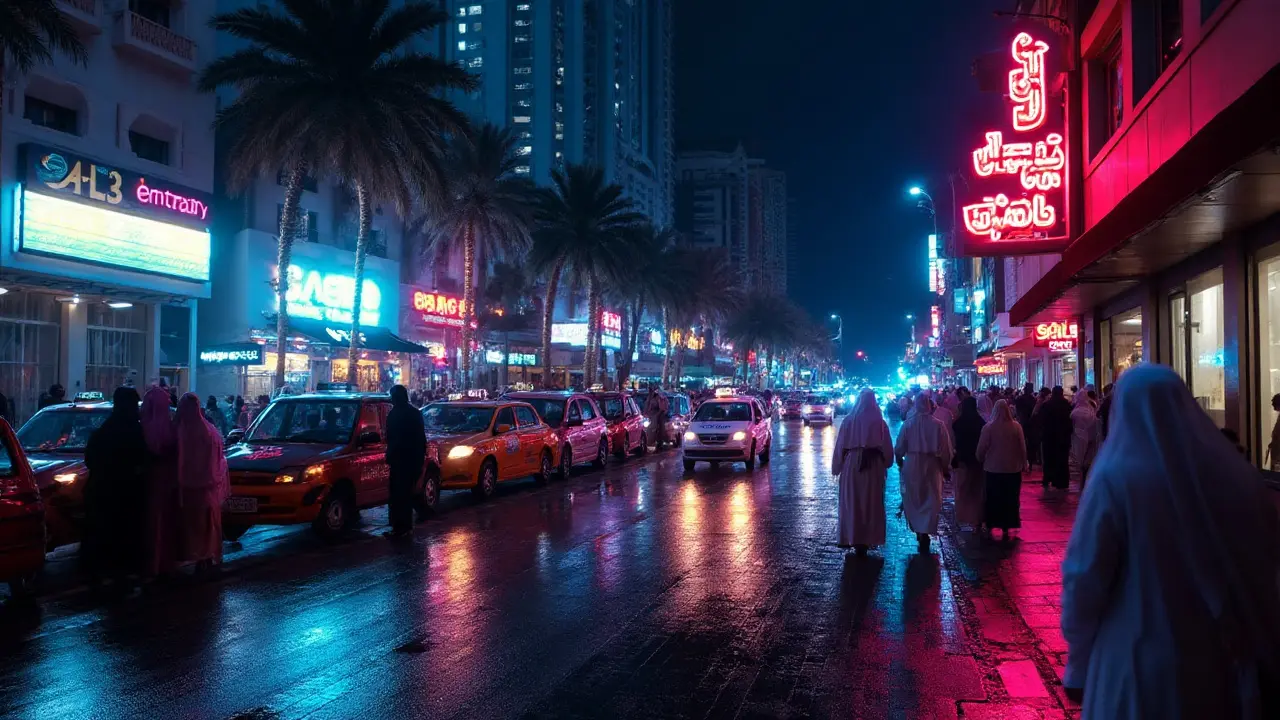- Home
- Adult Entertainment
- Psychology Behind Sex Demand in Dubai (2025): Data, Law, and Context

Psychology Behind Sex Demand in Dubai (2025): Data, Law, and Context
You clicked this because you wanted a clear, evidence-backed answer to a messy question: what actually drives paid sex demand in Dubai, and what does a real study of it look like? You’ll get the straight story-psychology, data, law-without voyeurism or moral panic. Expect nuance, not gossip. Also, a quick note: sex work and solicitation are illegal in the UAE, and sexual exploitation is a crime. This piece explores why demand exists and how researchers study it-no how-tos, no promotions.
Key takeaways
- Demand concentrates where there’s a mix of anonymity, cash, gender imbalance, alcohol-fueled nightlife, and weak social oversight-Dubai has several of these in one place.
- Psychology-wise, the strongest drivers are opportunity + perceived safety + status display + disinhibition while traveling.
- Dubai’s demographic skew matters: a large male-majority workforce and high visitor volumes raise the pool of potential buyers.
- Law is clear: prostitution, brothel-keeping, and trafficking are criminal offenses in the UAE; enforcement is active and penalties are severe.
- Good research uses indirect measures (hotline data, court records, platform takedowns, health indicators) and robust ethics; sensational “exposés” usually collapse under scrutiny.
Direct answer: what actually drives demand?
If we strip out myths, demand in Dubai clusters around a few overlapping forces. First, sheer numbers: the city hosted 17.15 million international overnight visitors in 2023, according to Dubai’s Department of Economy and Tourism, and tourism stayed strong in early 2024. More visitors means more people acting outside their daily routines.
Second, demographics: Dubai’s resident population skews male, driven by migrant labor and expat-heavy sectors. Dubai Statistics Center’s 2023 population bulletins show a clear male majority. That gender tilt raises the base rate of potential buyers, especially in transient, cash-rich pockets of the city.
Third, setting: glossy hotels, nightlife, luxury retail, and business travel create a sense of permission and privacy. Tourists feel anonymous; business travelers have expense accounts; peer groups lower inhibition. In psychology, this is a mix of “situational disinhibition” (people behave more freely away from home), moral licensing (“I’ve worked hard; I deserve this”), and status signaling (spending to project power).
Fourth, the platform effect: even where selling sex is illegal, encrypted messaging, social media, and gray-market intermediaries make discovery and contact easier. People interpret ease of access as a sign of safety, even when it isn’t.
Put that into a simple rule of thumb: Demand ≈ Opportunity + Anonymity + Disposable Income + Peer Norms − (Perceived Risk + Stigma). Dubai scores high on the first four for certain visitor segments, and would-be buyers often underestimate the last two because hotels and social bubbles feel risk-free.
Important reality check: the presence of demand does not mean the market is safe, consensual, or victimless. It often intersects with coercion and trafficking. And the legal risk is not theoretical-it’s real.

The psychology and context behind sex demand in Dubai
Let’s unpack the behavioral levers you’ll see in credible studies.
1) Disinhibition on holiday or business travel. Travelers step outside routines. They drink more, stay up later, and feel less watched. Psychologists call this the “vacation effect”: self-imposed rules loosen when cues of home are gone. In cities built for high-end play, impulses can feel legitimized.
2) Anonymity and misperceived safety. Five-star lobbies and private elevators create an illusion of safety and order. People wrongly map that feeling onto illegal activities, assuming low risk. This miscalibration fuels demand, even when enforcement is active and penalties are severe.
3) Status and conspicuous consumption. Thorstein Veblen’s idea is old but useful: people buy to signal status. In luxury hubs, some extend that logic to intimacy, confusing price with desirability and control. In research interviews elsewhere, men often frame purchase as proof of success more than desire-expect the same narrative to pop up in Dubai-focused work.
4) Gender imbalance and social isolation. Male-dominated workforces, rotational schedules, and limited social ties can nudge people toward paid intimacy. Loneliness shows up in surveys as strongly as sex-seeking. That’s uncomfortable, but it’s honest.
5) Norms and peer cues. Small peer groups inside expat or conference circles can normalize what would feel off-limits at home. One “veteran” traveler can reshape the group’s risk bar in an evening. You’ll see this in ethnographies: behavior spreads laterally, not top-down.
6) Digital convenience. Even where platforms are policed, private channels reduce friction. Lower friction equals higher experimentation. Researchers sometimes measure this through takedown counts, ad volumes, or messaging patterns (without accessing private content).
7) Tight law, visible order. Paradoxically, a city’s strong surface order can lull visitors: “If it were really dangerous, it wouldn’t happen here.” This false inference fuels demand while underestimating legal and ethical harm.
Context you can’t ignore. The UAE criminalizes prostitution, brothel-keeping, and trafficking (Federal Law No. 51 of 2006 on Combating Human Trafficking; Federal Decree-Law No. 31 of 2021). Dubai regularly announces enforcement campaigns and platform shutdowns. Any study that glosses over this legal backdrop is not serious.
Evidence, methods, and examples: how a real study works
There’s no single “official meter” for this market. Good research triangulates-multiple imperfect signals pointing in the same direction. Here’s what that looks like.
Data sources you actually see in strong studies
- Administrative records: court cases, arrest reports, visa violation data (aggregated), and health surveillance trends.
- Platform activity: ad volumes and takedown activity; metadata trends across known marketplaces; keyword monitoring in multiple languages.
- Service proxies: late-night ride-hailing patterns to/from nightlife clusters; hotel stay anomalies; seasonal spikes tied to trade shows or large events.
- Health indicators: anonymized STI testing trends from clinics that serve expats and visitors.
- Qualitative work: anonymized interviews with frontline NGOs, hotel staff, ride-hailing drivers, and-when ethically feasible-affected women and men.
What a good method avoids
- Simplistic counts of online ads (one person can post many ads; many ads are scams).
- Sting-only stats (enforcement varies, so counts reflect policing intensity as much as underlying activity).
- Unverifiable anecdotes or influencer “exposés.”
A plain-English demand model
Researchers often use a simple additive model to explain variation across cities and months:
- Tourists and business arrivals up? Demand likely rises.
- Major trade shows or sports events? Expect short-term spikes.
- Visible crackdowns or high-profile cases? Demand dips as perceived risk rises.
- Hotel rates surge? Mixed effect: fewer budget buyers, but more high-rollers with privacy.
Concrete examples (sanitized and legal-friendly)
- Visitor surges: Big event weeks correlate with higher late-night mobility around entertainment zones in many global cities. Studies compare these patterns to baseline months to test the “event spike” hypothesis.
- Messaging metadata: Even without reading content, researchers can track burstiness in specific keyword clusters across languages. Sudden spikes during expos suggest demand pulses, not steady flows.
- Peer norm effect: Surveys of business travelers in multiple hubs (Dubai, Singapore, Hong Kong) often show more permissive attitudes among repeat visitors who travel in groups, compared with solo newcomers.
Reading a “study” without being fooled: a 6-step check
- Source: Who produced it? Government body, university, NGO, or a marketing blog?
- Data: What are the actual datasets? Court records? Health data? Surveys? Or just screenshots of social media?
- Method: Do they explain sampling, exclusions, and limits? If not, be skeptical.
- Triangulation: Do multiple indicators agree, or is it one fragile metric?
- Legal/ethical context: Does it mention UAE law and trafficking risk? If not, it’s incomplete.
- Uncertainty: Are confidence bands or caveats included, or is it all certainty and sizzle?
| City | Legal status of prostitution | Male population share | International visitors (latest full year) | Enforcement stance | Implication for demand studies |
|---|---|---|---|---|---|
| Dubai | Illegal (criminal penalties) | High male majority (Dubai Statistics Center, 2023) | 17.15m (DET, 2023) | Active crackdowns; platform policing | Indirect measures needed; enforcement affects visibility |
| Singapore | Illegal; limited licensed zones historically for related activities | Near balance (Singapore Dept. of Statistics) | ~13-14m (STB, 2023) | Strict law; controlled zones; health screening in some contexts | Administrative and health data often used for triangulation |
| Amsterdam | Legal and regulated | Balanced | High EU tourism (Amsterdam data varies by year) | Regulatory oversight; zoning | Direct counts possible; demand elastic to tourism flows |
| Las Vegas | Illegal in city; legal in some Nevada counties | Balanced | ~40m (LVCVA, 2023) | City enforcement; regional variation | Event-driven swings; proxies via mobility and hospitality data |
Credible sources to watch
- Dubai Department of Economy and Tourism (visitor volumes, event calendars).
- Dubai Statistics Center (demographics).
- UAE Federal Decree-Law No. 31 of 2021; Federal Law No. 51 of 2006 (legal context).
- UNODC (trafficking definitions and regional patterns).
- Peer-reviewed journals in criminology, public health, and urban studies.
“Trafficking in persons shall mean the recruitment, transportation, transfer, harbouring or receipt of persons, by means of the threat or use of force or other forms of coercion...” - UN Protocol to Prevent, Suppress and Punish Trafficking in Persons (Palermo Protocol, 2000)

Law, ethics, and practical guardrails (for readers, researchers, and media)
The law in brief (UAE)
- Prostitution and solicitation are illegal. Offenses include purchasing, selling, brothel-keeping, and facilitating.
- Human trafficking is a separate, serious crime. Federal Law No. 51 of 2006 sets heavy penalties, strengthened by later amendments.
- Enforcement is active. Periodic sting operations, visa checks, and platform shutdowns occur; penalties can include fines, imprisonment, and deportation.
Ethics basics for anyone engaging with this topic
- Do no harm. Don’t publish identifying details of vulnerable people or venues.
- Consent is not a checkbox. Coercion, fraud, or debt bondage voids it. If you’re unsure, treat it as non-consensual.
- Beware of tidy narratives. If a story fits too perfectly into a stereotype, dig deeper.
Checklist: how to assess a claim about demand in Dubai
- Does it account for Dubai’s male-majority demographics and massive visitor flows?
- Does it acknowledge UAE law and enforcement?
- Are multiple data sources used (not just ads or stings)?
- Are seasonal/event effects considered (trade shows, sports, holidays)?
- Are uncertainty and limitations reported?
FAQ: quick answers you’re probably looking for
Is sex work legal in Dubai? No. Buying, selling, and facilitating are illegal, with criminal penalties. Separate laws cover trafficking and exploitation.
Why does demand exist if law is strict? Because opportunity, anonymity, money, and peer norms can override perceived risk. But the law does suppress visibility and raises consequences.
Is demand mainly tourists or residents? Both can contribute. Event weeks bring tourist spikes; resident demand is tied to male-heavy sectors and social isolation.
How do researchers study something illegal? Indirectly and ethically: aggregated records, platform metadata, mobility patterns, and interviews with strict privacy safeguards.
Is all paid sex linked to trafficking? Not inherently, but exploitation and coercion are common enough that any honest study must consider them and look for indicators.
Practical next steps (choose your path)
- Journalists: Triangulate claims, cite primary laws, avoid sensational anonymized “DMs” as proof.
- Researchers: Pre-register your protocol; secure IRB/ethics approval; plan for participant safety and legal compliance.
- Policy folks: Pair enforcement with victim services, multilingual hotlines, and demand-reduction campaigns targeted at high-risk traveler segments.
- Travelers/residents: Know the law and the risks. If you witness exploitation, seek advice from recognized NGOs or authorities-don’t intervene directly.
A quick reality anchor. Demand doesn’t float in a vacuum; it sits on top of demographics, money, and social cues. Dubai concentrates those inputs-glamour, privacy, mobility-so you see more potential buyers. The law and enforcement dampen visibility, but they don’t erase human behavior. That tension is what any solid 2025 study needs to capture: a city optimized for luxury and order, and the messy private choices people make within it.
A compact formula to remember
Demand likelihood = (Tourist volume + Male-majority pockets + Luxury/privacy cues + Peer normalization + Digital ease) − (Perceived legal risk + Stigma + Cost/time friction). If a claimed trend doesn’t line up with these levers, question it.
If you’re building or reading a study this year, here’s your cheat-sheet
- Time frame: Use at least 12 months to catch seasonality and major events.
- Data mix: One admin source + one mobility/transaction proxy + one qualitative source.
- Event controls: Tag weeks with mega-events, conferences, and holiday peaks.
- Sensitivity checks: Re-run without sting weeks; see if results hold.
- Ethics: Anonymize, store data securely, avoid covert contact with vulnerable people.
That’s the sober, humane way to understand the psychology behind demand in Dubai-no glam, no myths, just what the evidence and lived context actually say.

Shannon Carlisle
I'm an experienced escort with a deep interest in Dubai's unique entertainment scene. I enjoy sharing my insights and stories from the vibrant world of escorting in Dubai. Through my writing, I hope to offer a fresh perspective on the city's nightlife and luxurious experiences.
About
Discover escort UAE in our blog! Uncover the UAE’s nightlife, premium companionship, and discreet elegance with unique stories and insights. Start your journey today









